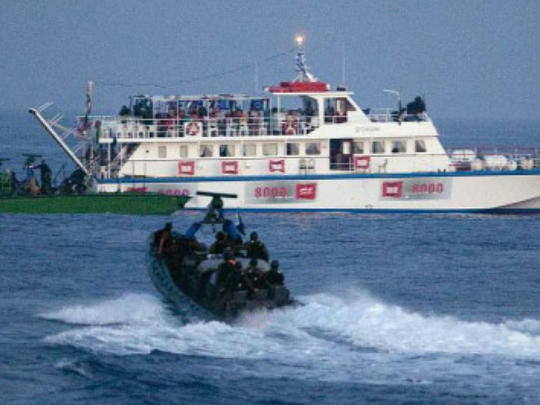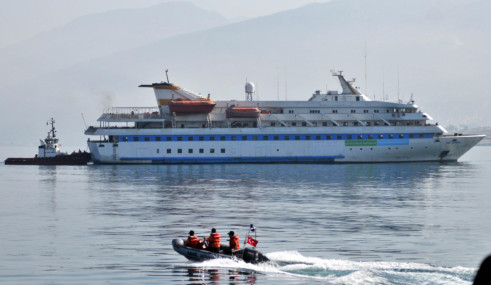
At the end of last month, Turkey and Israel reached an agreement to end six years of a bitter break in bilateral relations. The agreement sought to address the fallout of the May 2010 raid by Israeli commandos on a Turkish-flagged flotilla of aid ships headed towards the Palestinian Gaza Strip. The Israeli attack led to the death of nine Turkish nationals aboard the ‘Mavi Marmara’ flagship vessel of the flotilla group, forcing Ankara to withdraw its ambassador and downgrade diplomatic relations with Tel Aviv.
Previously seen as a robust alliance, relations between Ankara and Tel Aviv had begun to gradually deteriorate, following the rise to power of Turkey’s ruling Justice and Development Party (AKP) in 2002. The breakdown in these relations, however, accelerated further, following the attack on the flotilla. Turkey stipulated three conditions before it would return to normal diplomatic relations with Israel: An official Israeli apology for the deaths caused by the raid on the Mavi Marmara; compensation for the families of the Turkish victims of the raid; and a lifting of the siege on Gaza Strip. Israel’s refusal to make a formal apology ensured that all diplomatic efforts to end the crisis in Turkish-Israeli relations failed. By September 2011, Turkey had announced that it would dismiss the Israeli ambassador as part of a broad set of sanctions against its former ally. This also included the cancellation of existing bilateral agreements between the two militaries.
The United States, meanwhile, continued to mediate between the two countries, with US President Barack Obama personally pressurising Israel to acquiesce to the Turkish demand for a formal apology during a presidential visit in March 2013. Obama’s intervention did bear fruit, with Israeli Prime Minister Benjamin Netanyahu speaking to Recep Tayyep Erdogan — then the prime minister of Turkey — over the telephone and apologising in person. By February of 2014, negotiators from both countries would eventually arrive at a draft agreement — later, Joseph Ciechanover, Netanyahu’s chief envoy to the talks with Turkey, described this draft as being very similar to the final deal arrived at 28 months later. Netanyahu had previously stalled on signing that earlier agreement, choosing to bide his time and await the results of Turkey’s presidential elections, which Erdogan himself won in the summer of 2014.
The full agreement extends to six articles. For its part, Israel has agreed to transfer $20 million (Dh73.56 million) to a fund intended for the victims of the raid on the Mavi Marmara and their families. This is in exchange for Turkish agreement to enact a legislative instrument to drop all judicial proceedings against the Israeli military personnel responsible for the raid. Once these measures are in place, both countries will resume normal diplomatic relations.
The agreement does not end the Israeli blockade on the Gaza Strip, however. It merely allows Turkey greater access to the Gazan market via the Israeli seaport in Ashdod. Other provisions in the agreement allow for the implementation by Turkey of a number of projects in Gaza. These include the construction of a joint German-Turkish power plant; a water desalination plant on the Mediterranean coast and other projects. In addition to the Gaza Strip, the deal also makes way for Turkey to participate in the construction of an industrial zone near the city of Jenin on the Palestinian West Bank.
Another consequence of this agreement is that Turkey will no longer object to enhanced cooperation between Nato, of which it has long been a pivotal member, and Israel. In the aftermath of the Mavi Marmara attack, Ankara had objected to extensive involvement of the Israeli military in Nato exercises. Since cooperation between the Nato-wide umbrella and a non-member state requires the unanimous approval of member states, Turkey’s veto effectively restricted the spheres in which Israel could work with Nato as a whole.
The normalisation deal will likely revitalise bilateral trade and economic relations between the two countries. This follows the imposition of a Turkish government ban on the participation of Israeli firms in government tenders in 2015, which saw a 40 per cent reduction in the value of Israeli exports to Turkey. The previously robust trade relations are likely to bounce back, now that a major government limitation has been lifted. Israel also views Turkey as a vital market for its prospective natural gas production from the Mediterranean’s Leviathan gas field. Not only could this offshore field, which Israel de facto dominates, meet Turkish energy requirements, it would also help Turkey diversify its energy resources instead of remaining heavily dependent on Russian and Iranian supplies.
In the Arab region, the deal will reverberate strongly, and perhaps put an end both to the fantasies of Turkey — and the AKP, reflexively loyal acolytes — as well as those who blindly hate it. While these two groups project their own prejudices onto their perceived image of Turkey, Ankara’s political actions have demonstrated that its policies are driven by political pragmatism, national interests, regional balances of power and domestic calculations; not principles, ethics or values.
Dr Marwan Kabalan is a Syrian academic and writer.










